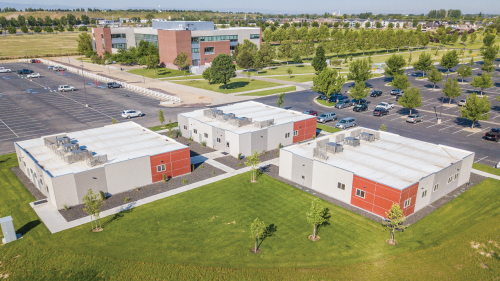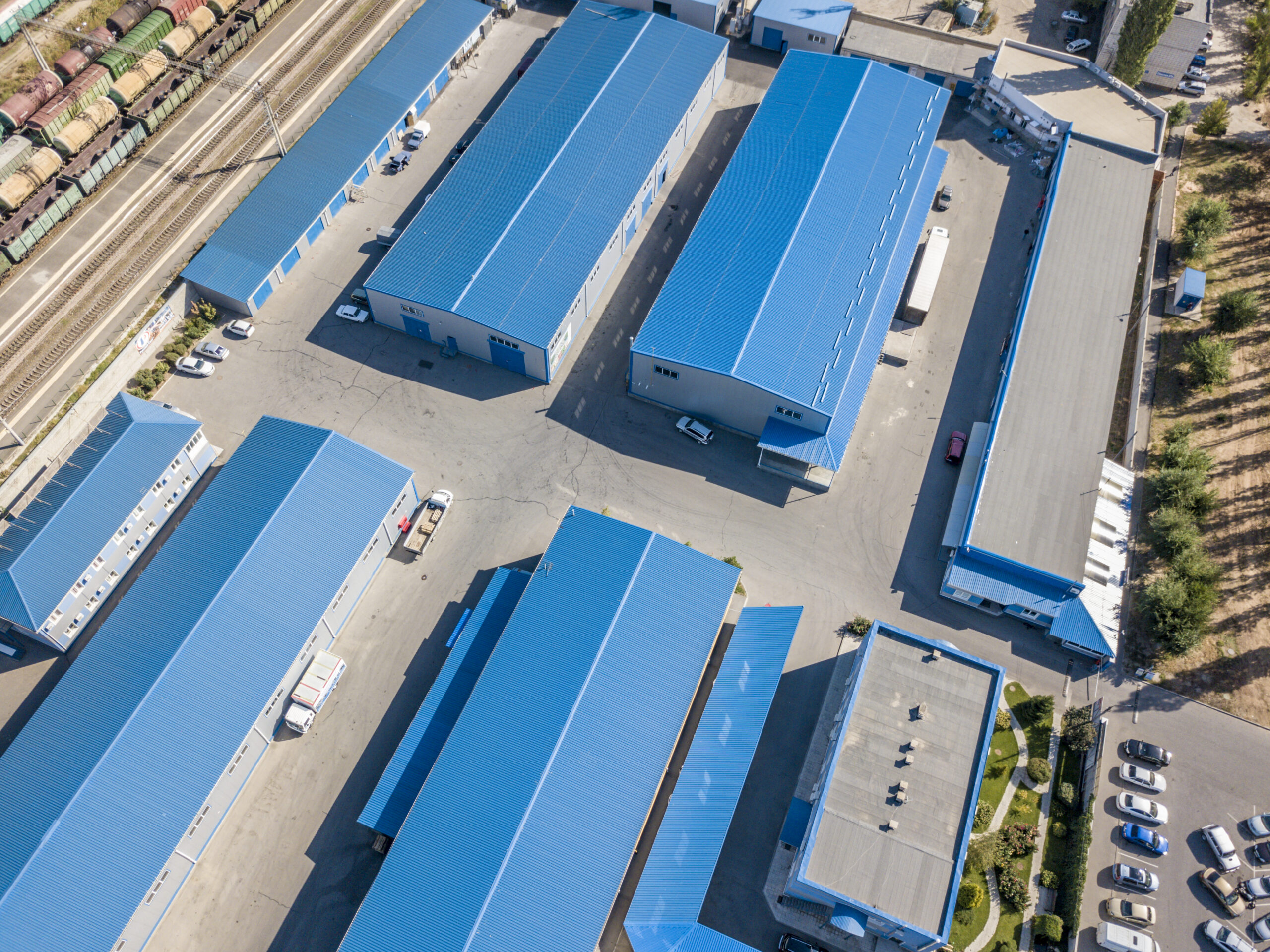
Innovative Uses of Modular Construction in the Hospitality Industry
As the hospitality industry continues to evolve, it’s imperative to explore innovative approaches to construction that not only meet the demands of the market but also align with sustainable practices. Modular construction, also known as prefabrication, has emerged as a game-changer in this regard. By assembling building components off-site in a controlled factory environment before transporting them for final assembly, modular construction offers a host of benefits that are revolutionizing how hotels, resorts, and other hospitality venues are conceptualized, constructed, and operated.
Why Modular Construction?
Modular construction, also known as prefabrication, involves assembling building components off-site in a controlled factory environment before transporting them to the construction site for final assembly. This approach offers a plethora of advantages, including:
Speed – Modular construction significantly reduces project timelines compared to conventional methods. With simultaneous off-site fabrication and on-site preparation, projects are completed in a fraction of the time, allowing hotels to open their doors to guests sooner.
Cost-Efficiency – Time is money, and modular construction saves both. By streamlining the construction process, minimizing material waste, and optimizing labor resources, Pacific Mobile Structures delivers cost-effective solutions without compromising quality.
Quality Control – Factory-controlled environments ensure consistent quality across all modules. Stringent quality checks at every stage of production guarantee that each component meets industry standards and exceeds client expectations.
Sustainability – Sustainable practices are at the core of modular construction. By minimizing construction waste, reducing energy consumption, and utilizing eco-friendly materials, Pacific Mobile Structures is committed to creating environmentally responsible hospitality solutions.
Repeatability – The repeatability of modular construction allows for hotel and resort development to be streamlined, ensuring consistent design, quality, and cost-effectiveness by replicating standardized modules across various properties.
Revolutionizing Hospitality with Modular Construction
Because of modular construction’s undeniable advantages, it’s reshaping the hospitality industry. Here’s how:
Rapid Expansion
In an industry where timing is everything, modular construction enables rapid expansion of hotel chains and resorts. Whether it’s adding new rooms, amenities, or entire wings, modular construction methods deliver scalable solutions tailored to the unique needs of each project. Take, for instance, the expansion of the Hilton Garden Inn brand across various locations. Using modular construction techniques, Hilton efficiently added new wings to existing properties, seamlessly integrating additional guestrooms and amenities without disrupting ongoing operations. This agile approach allowed Hilton to capture new market opportunities swiftly, ensuring their brand remains competitive and adaptable in an ever-evolving industry.
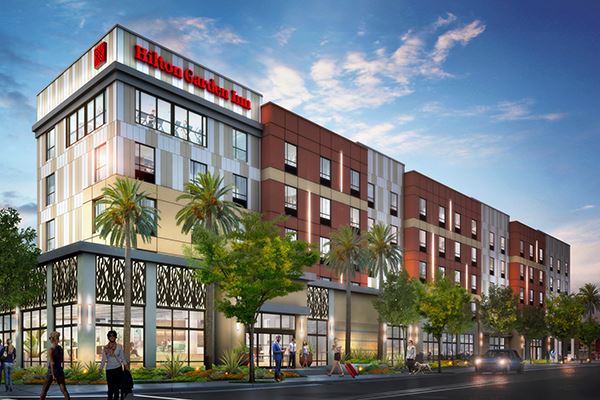
Modular construction also empowers hotel chains and resorts to pursue ambitious growth strategies without compromising quality or guest experience. Consider the expansion efforts of the luxury resort chain, Four Seasons Hotels and Resorts. By leveraging modular construction methods, Four Seasons successfully expanded their portfolio with the addition of stunning new properties in remote or challenging locations, such as exotic islands or rugged mountain landscapes. Prefabricated modules were transported to these sites and assembled with precision, overcoming logistical obstacles and ensuring the timely completion of projects while upholding the brand’s reputation for unparalleled luxury and sophistication. This strategic deployment of modular construction not only enabled Four Seasons to extend their global reach but also reinforced their commitment to delivering exceptional experiences to discerning travelers worldwide.
Bespoke Design
Contrary to popular belief, modular construction doesn’t mean sacrificing design flexibility. With customizable modules ranging from sleek contemporary suites to cozy cabins, hotels can create unique guest experiences while maintaining brand identity. For instance, the innovative approach adopted by the boutique hotel chain, citizenM. Known for its distinctive design aesthetic, citizenM leveraged modular construction to create visually striking yet functional spaces tailored to the preferences of modern travelers. From vibrant communal areas adorned with contemporary art to modular guestrooms featuring cutting-edge technology and customizable interiors, citizenM redefined urban hospitality by seamlessly blending design innovation with modular construction principles.
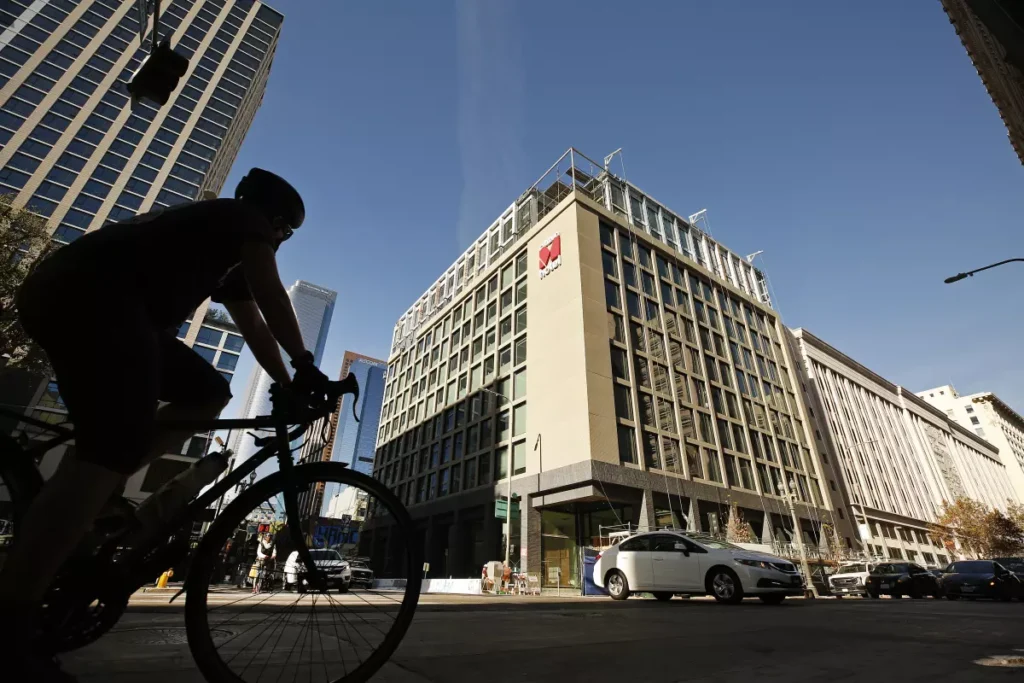
Additionally, modular construction enables hotels to embrace local culture and heritage by incorporating region-specific design elements into their properties. For example, when Marriott International expanded its presence in Japan with the opening of the Moxy Tokyo Kinshicho, the design team embraced modular construction to infuse the hotel with elements inspired by traditional Japanese architecture and craftsmanship. By integrating modular components such as shoji screens, tatami mats, and minimalist furnishings, Marriott created a unique and immersive guest experience that celebrates Japan’s rich cultural heritage while providing modern comfort and convenience. This approach not only enhances the hotel’s appeal to both domestic and international travelers but also underscores the potential of modular construction to harmonize with diverse design influences and create truly distinctive hospitality offerings.
Remote and Eco-Friendly Retreats
From secluded eco-resorts nestled in nature to luxury glamping sites off the beaten path, modular construction makes it possible to build sustainable hospitality destinations in remote locations with minimal environmental impact.
One notable example is the Fogo Island Inn in Newfoundland, Canada. Situated on a remote island renowned for its rugged landscapes and vibrant culture, the inn was constructed using modular building techniques that minimized environmental disturbance while maximizing energy efficiency. By prefabricating components off-site and transporting them to the island, the construction process minimized disruption to the fragile ecosystem while providing a luxurious retreat that seamlessly integrates with its surroundings. This approach not only showcases the potential of modular construction to create remote hospitality destinations but also underscores its compatibility with eco-conscious design principles.
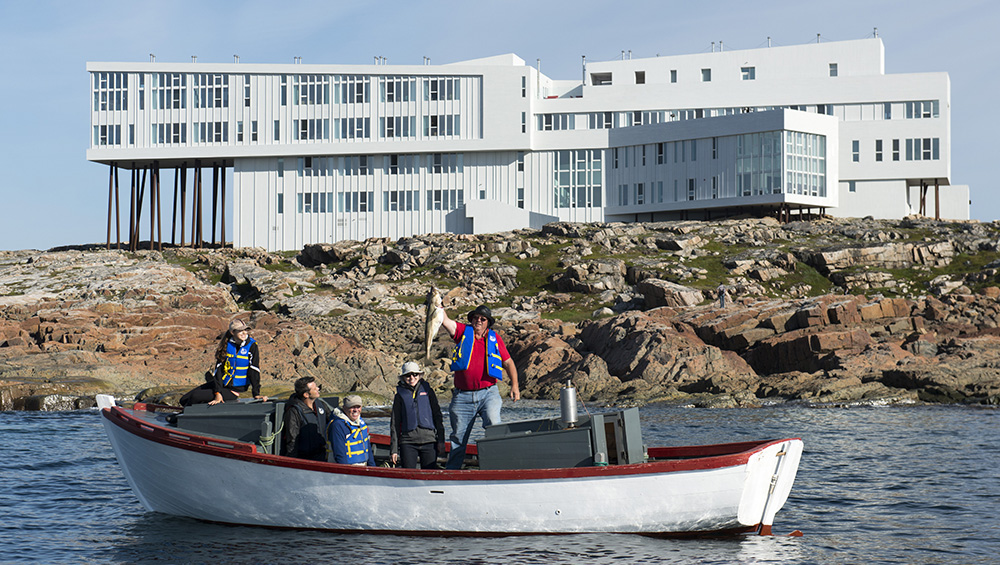
Modular construction has also become the key in the development of off-grid retreats that operate in harmony with nature, reducing reliance on traditional infrastructure and minimizing carbon footprint. For instance, the Treehotel in Sweden offers guests the opportunity to stay in uniquely designed treehouses suspended among the forest canopy. Each treehouse is constructed using modular components that minimize impact on the surrounding environment while providing a sustainable and immersive lodging experience. By incorporating renewable energy systems, such as solar panels and composting toilets, the Treehotel exemplifies how modular construction can support the development of eco-friendly hospitality destinations in remote locations. This innovative approach not only attracts environmentally conscious travelers but also demonstrates the feasibility of creating off-grid retreats that blend luxury with sustainability.
Temporary Accommodations
Whether it’s hosting events, festivals, or corporate gatherings, temporary accommodations are in high demand. Modular construction offers a quick and efficient solution for creating pop-up hotels and hospitality spaces that cater to temporary needs without compromising on comfort or aesthetics.
One notable example is the Coachella Valley Music and Arts Festival in California, where modular construction techniques are employed to create pop-up hotels and luxury camping experiences for attendees. By utilizing prefabricated modules, organizers can swiftly assemble comfortable and aesthetically pleasing accommodations, complete with amenities such as air conditioning, private bathrooms, and stylish furnishings. This approach not only enhances the festival experience for attendees but also underscores the potential of modular construction to adapt to diverse temporary hospitality needs while maintaining high standards of comfort and design.
Another example of how modular construction offers a sustainable alternative to traditional temporary accommodations by minimizing construction waste and environmental impact is during major sporting events like the Olympic Games.
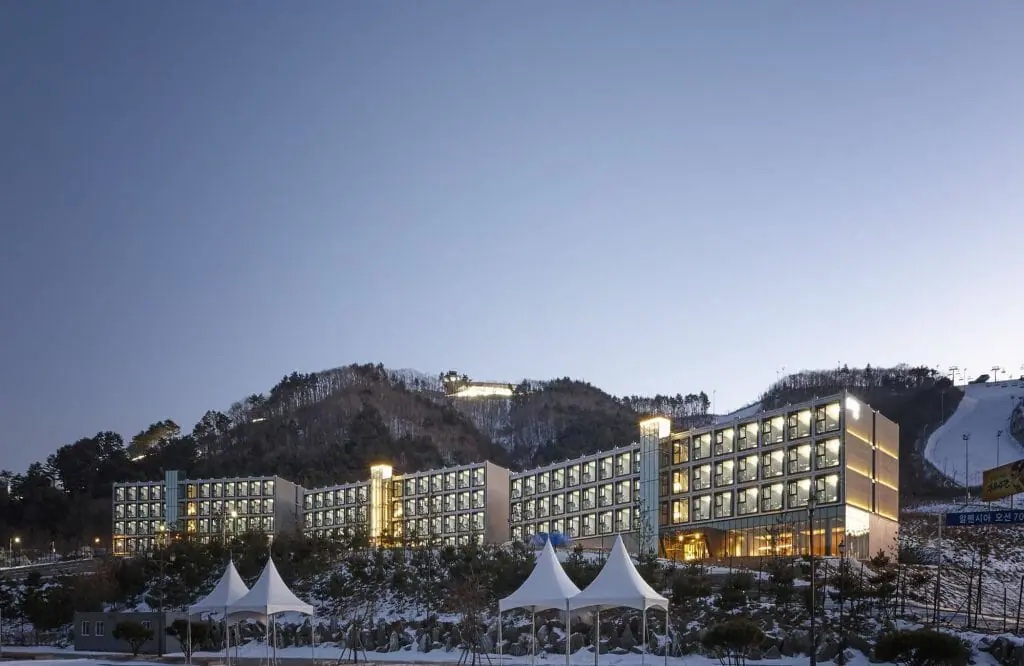
Modular construction methods are increasingly being embraced to provide temporary hospitality spaces for athletes, officials, and spectators. By prefabricating modular units off-site and assembling them on location, organizers can efficiently create temporary hotels and hospitality facilities that meet stringent quality standards while reducing construction time and waste. This sustainable approach aligns with the growing emphasis on eco-friendly practices in event planning and underscores the role of modular construction in facilitating temporary accommodations on a large scale without compromising on environmental stewardship.
Get the Space You Need for Your Hotels, Resort, and More
Modular construction is not just a trend but a transformative force in the hospitality industry. With its many advantages and versatile applications, it’s reshaping how hotels, resorts, and other hospitality venues are conceived, constructed, and experienced, ushering in a new era of efficiency, sustainability, and innovation. As the industry continues to embrace modular construction, the possibilities for creating exceptional guest experiences are boundless, paving the way for a more dynamic and resilient hospitality landscape.
As the largest family-owned and operated modular construction company in the United States, Pacific Mobile Structures can get you the space you need, when you need it, and how you want it. Not to mention, as a family-owned company, we’re able to work with you in a way that’s unique in the modular industry. That’s with a relentless, customer-first commitment. Whether you need to lease a relocatable modular office or purchase a new, custom-built structure, it is reflected in every dealing with you. From the condition of our modular buildings to our staff talent, to the speed and ease with which you receive our buildings. Reach out and request a quote today.

